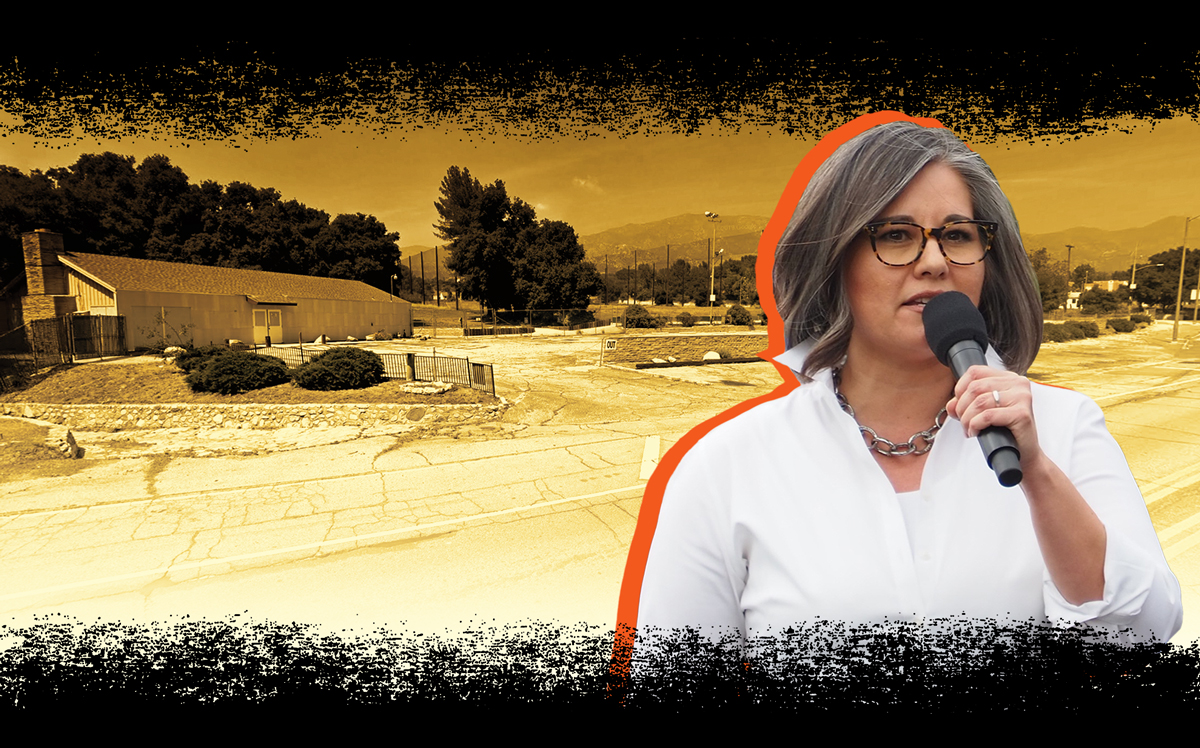A developer is set to sue the city of Los Angeles for rejecting a massive residential complex in the San Fernando Valley, a project that city council members killed due to concerns over wildfires in the area.
Fred Gaines, an attorney representing developer Snowball Investments and its principal Howard Einberg, vowed to sue the city “the first thing in the new year” after the council voted earlier this month to deny a zoning variance for a 215-unit residential project slated for 6433 La Tuna Canyon Road in the Tujunga neighborhood.
“The vote down is illegal,” Gaines said, arguing that council members defied the Sunland-Tujunga community plan, which the lawyer said calls for more upzoning of properties to increase the San Fernando Valley area’s housing stock.
City council member Monica Rodriguez, whose district includes the project and who led the opposition, said the “upzoning is a discretionary matter” and that council members don’t have to precisely adhere to city Planning Commission designs.
Squelching a project to replace the former site of the Verdugo Hills Golf Course – which has been closed and sat empty for three years – reflects a city government trying to strike a balance between two paramount concerns: housing supply and the constant threat of fires.
Los Angeles is short 52,000 units of affordable housing, according to a May report by the California Housing Partnership. However, there is also a concern about building housing in certain areas, given that fires have destroyed thousands of Los Angeles County structures over the last two years.
“For Rodriguez, are you going to be more afraid of a lawsuit from Fred Gaines or a lawsuit from people who could be victims from a massive fire?” said Casey Maddren, president of United Neighborhoods Los Angeles, an advocacy group that opposed the development.
The City Planning Commission approved the plan by Snowball Investments in June.
In October, the Saddlebridge fire broke out near the project site, destroying 19 buildings and damaging 88 others, a blaze that followed the Creek and La Tuna fires in the region.
On the day of the city’s Planning Land Use and Management Committee Dec. 10 meeting, Rodriguez wrote to PLUM chairman Marqueece Harris-Dawson, announcing her opposition to Snowball Investments’ plan.
“The subject’s site topography and location within the city’s very high fire hazard severity zone raises real questions about fire and life safety,” Rodriguez wrote. “The growing frequency of wildfires is far from standard and the city needs to do more to adjust to the new normal. Fires are getting worse.”
PLUM committee members, as is customary, followed a local council member’s wishes and unanimously voted the project down. The full City Council then voted down the development in a 14-0 vote, though councilmember Gil Cedillo questioned Rodriguez’s opposition in a council floor speech.
“There is another new normal and that new normal is called homelessness,” Cedillo said. “That new normal is called a lack of affordability and supply. We can’t continue to reject building housing and then talk about our housing problem. The private sector is not going to be able to build enough houses if we encumber them with so many obstacles.”
Cedillo, however, joined in voting against the project. A spokesperson for Rodriguez said that the council member “has long been a housing advocate and is focused on creating housing opportunities,” but “these fires are a reality we face in Los Angeles and across California.”
